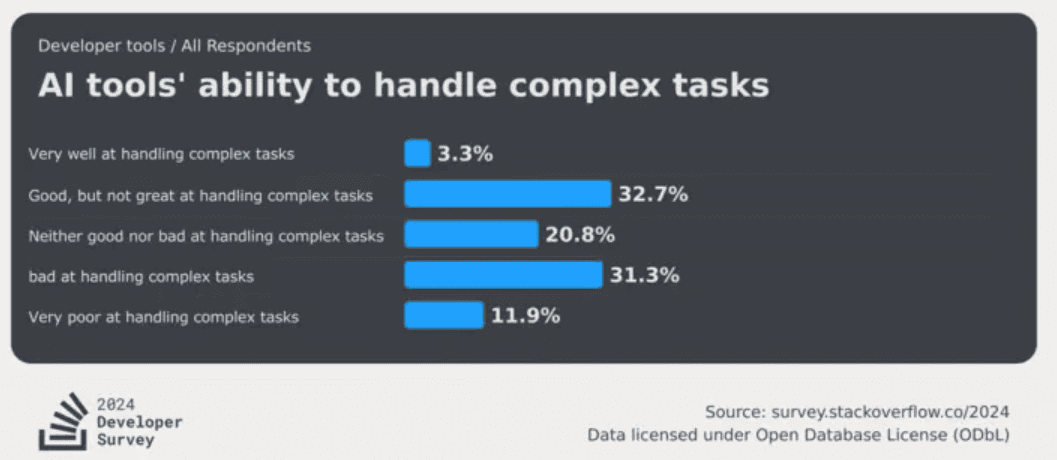Eight in ten developers appear to be unhappy in their current jobs. Additionally, the AI story does not appear to fulfill promises of productivity gains. However, job dissatisfaction is more likely to come from declining pay, high workloads and unrealistic expectations from managers.
Both farmers and plumbers have higher job satisfaction than developers. The Workplace Satisfaction Survey identifies several problems, many reinforcing each other. For example, developers’ pay appears to decrease over the years unless they are versatile and have entrepreneurship in him or her, or another extra skill. Declining pay does not come with a lighter workload. Many of them worry about the unrealistic workload, which is often made worse by managers, causing burnout. Finally, they live in fear due to the many rounds of layoffs that have plagued the IT sector for some time.
Tip! Intel wants to save 10 billion and cuts 15,000 jobs
Experienced developers not so happy with AI tools
The cause is not in the tools they use. That’s according to a recent survey by Stack Overflow that surveyed developers about the tools they use. There, it notes a slowly changing attitude of developers toward AI tools.
Although AI tools still appear to make many developers’ jobs more enjoyable (72%), satisfaction has declined. This is a five percent drop. That’s a small difference, but it may be a first sign that the tools are not delivering as much efficiency and time savings as thought.
Moreover, a larger trend is emerging: the tools appear beneficial primarily to starting developers. Those who know the ropes are much less likely to report that AI tools provide greater productivity (61% versus 71%). The biggest problems lie with not being able to solve complex tasks. For many, this results in a relationship with AI where the technology gets to write code (82%), but the developer tests the code themselves.

In addition, confidence in the accuracy of tools is higher among learning developers (49% versus 42%). On average, however, only four in 10 developers believe the tools are reliable.
More job security
The dissatisfaction with the tools does come with a positive side. For example, 70 percent of developers do not feel threatened. They are confident that technology cannot completely take over their jobs. The explanation probably lies in that AI is not a full-fledged replacement for a professional developer. It can be used for junior tasks, but a senior is always needed to monitor the work completed.
The scope of the survey spans 185 countries and 65,000 developers, so the dissatisfaction seems at least large enough for a (small) protest action. Fear of dismissal will then probably make entrepreneurship decline again. What is clear, however, is that mainly AI tools will have to make quick strides to get to the level of professional developers. In agriculture smart technologies can also be found that support farmers in their jobs. So, technological aids to increase productivity are certainly not limited to IT jobs.
Read more: Autonomous AgBot makes farmers more efficient and sustainable
